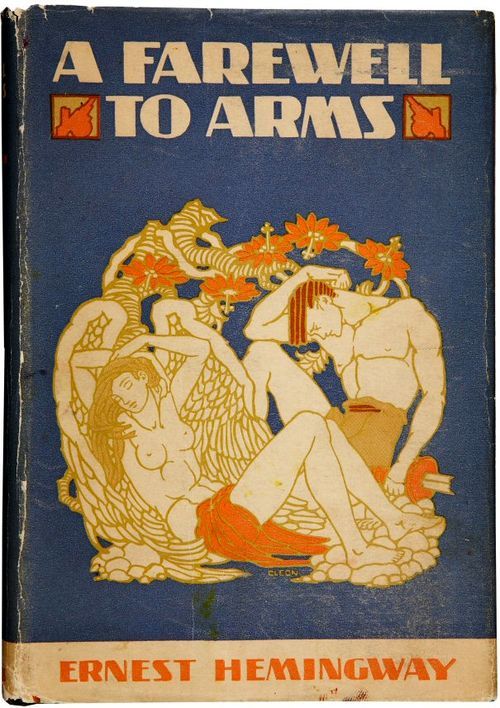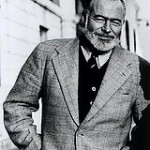
Happiness in intelligent people is the rarest thing I know. Ernest Hemingway

So, yes it was a sad ending that leaves you feeling empty and like nothing is worth anything and love all ends up in the gutter and nothing matters. Where did Frederic Henry go after he left the hospital and walked out into the rain? Why couldn’t there be a happy ever after for Catherine and Frederic? The short answer is that this is Hemingway after all. It’s just another variation of isn’t it pretty to think so?
Apparently Hem did consider quite a few other ways of ending this classic. In an interview in The Paris Review in 1958, Hemingway commented that the final words of “A Farewell to Arms,” his wartime masterpiece, were rewritten “39 times before I was satisfied.” Actually his grandson Sean believes that there are over 47 versions of the ending not to mention different working titles of the book. The alternate endings are labeled and gathered in an appendix in the new edition. For those of us who care about this stuff, it’s a mind boggling enterprise and we play out all of the what ifs and hope that our favored ending had made it through. The reality is that it was Hem’s book and he gets to choose. Would the impact have been the same if Catherine and Frederic set up housekeeping in Switzerland? Hard to say but we know the impact as it is plays out intense and soul-searing. It stays with you forever.

So what are just a few of the options Hem considered?
1) “The Nada Ending,” Hemingway wrote, “That is all there is to the story. Catherine died and you will die and I will die and that is all I can promise you.” Holy gosh. We need some hope.

2) The “Live-Baby Ending,” listed as No. 7, concludes, “There is no end except death and birth is the only beginning.” Not too cheery either.
3) The “Fitzgerald ending,” suggested by F. Scott Fitzgerald, that the world “breaks everyone,” and those “it does not break it kills. It kills the very good and very gentle and the very brave impartially. If you are none of these you can be sure it will kill you too but there will be no special hurry.”

Alternate titles Hem considered were: “Love in War,” “World Enough and Time,” “Every Night and All” and “Of Wounds and Other Causes.” One title, “The Enchantment,” was crossed out by Hemingway.
Hem’s only remaining son, Patrick, noted that the original notes give insight into his father. The revisions are being published by agreement of Hem’s estate and his old publisher, Scribner’s under the imprint of Simon and Shuster.
I believe that the JFK Library, Hemingway Collection, is where the original notes and pages are being preserved. I trust that Hem chose the one that best expressed his intent.

